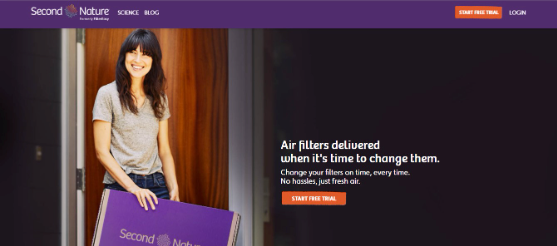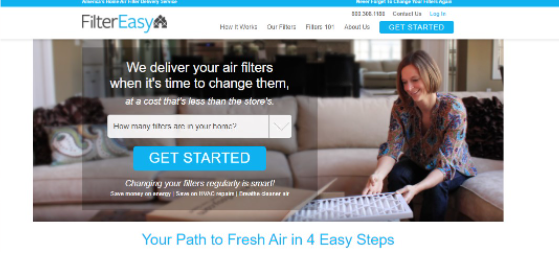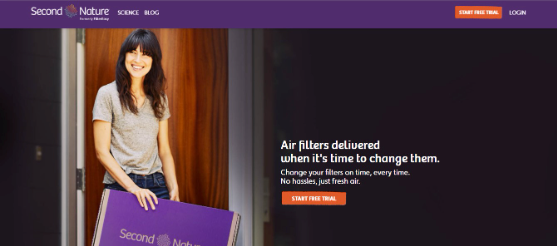The 3 Types of Domain Names and Common Domain Extensions
When you buy a domain name, you purchase a piece of digital real estate. But what, exactly, are you getting for your money? NameExperts.com Director Joe Uddeme unravels the elements of a domain name – so you’ll have a clearer understanding of the architecture behind them. A domain name is an address you type into your web browser whenever you want to visit a website. It is arguably one of the most important assets any business can own. While ‘domain name’ is an all-encompassing term, a domain is actually made up of multiple parts. Understanding these elements can give you a clearer picture of the domain name investing world and ensure you’re well-informed before buying a domain name or asking a skilled domain broker to negotiate the purchase of one on your behalf. Key Takeaways Domain names – an introduction The 3 types of domain name Domain TLDs for beginners Why not check out our article about why choosing a .com domain name still makes sense for most businesses? What are domains? A domain name is a human-readable address that directs you to a particular website available on the internet. It’s akin to the address for your official residence or workplace. When someone wants to visit you, they come to your address. Similarly, when someone wants to visit a website, they type in the domain address in their web browser. Any domain name has four main components; Domain name: The name of the domain itself. Top-Level domain (TLD): The suffix that appears after the domain name, e.g., .COM and .NET. Subdomain: A domain that is part of another primary domain. It is also known as a third-level domain. Protocol: The system that specifies how information from the domain is transferred to your web browser. It is either HTTP (insecure) or HTTPS (secure). Take https://www.nameexperts.com/, for example. NameExperts is the domain name .COM is the top-level domain WWW is the subdomain HTTPS is the protocol The 3 Types of Domain Names There are three main types of domains, including: 1. Top-Level Domains A top-level domain (TLD) is the final section of a domain name. It is the last segment of text appearing after the dot symbol. For example, in Google.com, .COM is the top-level domain. Ever since the world wide web’s inception, .COM has been the most common top-level domain. It was originally used to designate commercial businesses but has become the de-facto TLD for most websites. Another popular TLD is .NET. It was initially meant for internet service providers and networks but is now available to anyone who wants it. Because NET signifies network and technology, this is an ideal option for technology companies. Yet another well-known TLD is .ORG, which was originally used to designate not-for-profit organizations. Till today, most people associate this TLD with non-profit organizations and social causes rather than commercial businesses. The .ai TLD is another popular one today – especially for tech firms. There are two main types of top-level domains; Generic TLD A generic top-level domain refers to domain name endings with three or more characters, the type that you’d most likely recognize. .COM, .NET, .ORG, .INFO, and other common domain endings fall under this category. Before 2011, there were barely two dozen domain extensions classified as generic. That year, the Internet Corporation for Assigned Names and Numbers (ICANN) expanded the number of generic domain extensions from 22 to over 1,200, opening up more opportunities for individuals and businesses to acquire domain names. Country-Code TLD As the name implies, these are domain extensions associated with specific countries. ICANN assigns country domain endings to each formally recognized nation and sovereign state, and these nations collect a royalty on every sale of their assigned TLD. For example, Tuvalu, a small island nation, earns 1/12th of its annual income from its .TV domain extension. Other popular examples of country domain endings include .US for the United States of America .AU for Australia .DE for Germany .CA for Canada .CC for Cocos Islands .AE for the United Arab Emirates (UAE), etc. 2. Second-Level Domains A second-level domain is directly below a top-level domain in the domain hierarchy. It is the part of the domain name that comes right before the top-level domain. For example, in NameExperts.com, NameExperts is the second-level domain. The second-level domain is usually a combination of words describing the business or service of the domain name owner – and it pays to match this to the name of your business whenever possible to strengthen your brand. In the above example, NameExperts describes the business of a professional domain name broker that helps customers to acquire valuable domains. A second-level domain can include letters, numbers, and hyphens. Symbols are not allowed. 3. Third-Level Domains The third-level domain, or subdomain, is the part of the URL that comes before the second-level domain. The most common subdomain is www., which refers to the world wide web. Third-level domains are not mandatory, so you can have a fully functional domain name without the www part. Some website owners create third-level domains to represent a different section of their website. Examples include: Shop.mywebsite.com refers to the e-commerce section of a website. Blog.mywebsite.com refers to a blog attached to the website. Support.mywebsite.com leads to the customer support section of a website. Understanding Domain TLDs A domain name is the most important property for anyone who conducts business online. Hence, it’s crucial to understand what they are and the different types of domain name extensions to use for a website. The information above should help you figure out how to structure your domain, but if you need help, we’re experts at domain selection and helping you buy the perfect domain. About the author Joe Uddeme is Director and Principal of Name Experts, one of the world’s leading domain name brokerage services. He has overseen domain name sales and acquisitions totaling more than $150 million and is renowned worldwide as a go-to expert in buying and selling premium domains. Contact the NameExperts team at: [email protected]






